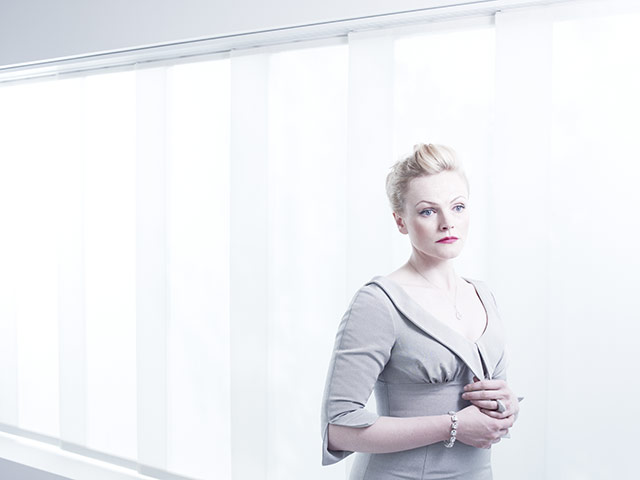
Maxine Peake has gone from one side of the law to the other in the past year. “I was in the dock for Criminal Justice, and it was a lot more fun being a barrister in Silk. You get to do more; you’re not stuck in the witness box on your own.” Though Peake’s breakthrough came with Victoria Wood’s Dinnerladies, she’s made her name with dramas such as See No Evil, The Street and Little Dorrit. “I’m desperate to do some comedy before it’s been too long. I’ll forget how to do it and people won’t laugh at me because they expect me to be bleak” Photograph: Phil Fisk
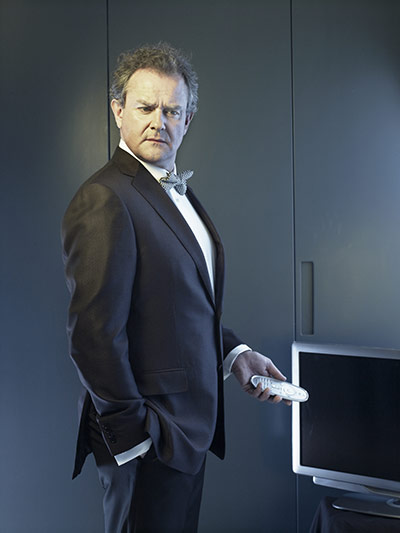
Hugh Bonneville admits that the public’s love of Downton Abbey (which is up for the YouTube audience award) feels surreal. “It’s having the same impact everywhere around the world. You can’t put your finger on why it strikes a chord, but it’s great that the production has been welcomed with open arms.” Bonneville also created the perfect portrait of middle-management frustration in sitcom Twenty Twelve this year. He says Ian Fletcher, leader of the Olympic Deliverance Committee, is all down to writer/director John Morton. “Fletcher sees the best in any situation and papers over the cracks with a fixed smile” Photograph: Phil Fisk
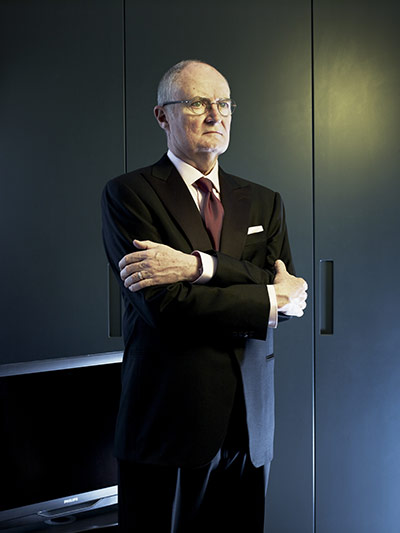
For Jim Broadbent, television was all about cowboys and clowns. “We didn’t get a TV until relatively late, but I was addicted from the word go. I used to be round the neighbours’, knocking on the door to watch theirs. I loved Ted Ray, Charlie Drake, Dave King and the westerns such as Cisco Kid.” He enjoys working in TV, too – “The body clock is more suited to the pace, rather than the drawn-out shoot of the big movie” – especially when it’s to appear in dramas such as Any Human Heart, which has won him a nomination for best leading actor. “It was beautifully written; I liked the fact that William Boyd adapted it himself, even though he had to massacre his book to get it on screen. It always has to be about the script, always the story” Photograph: Phil Fisk
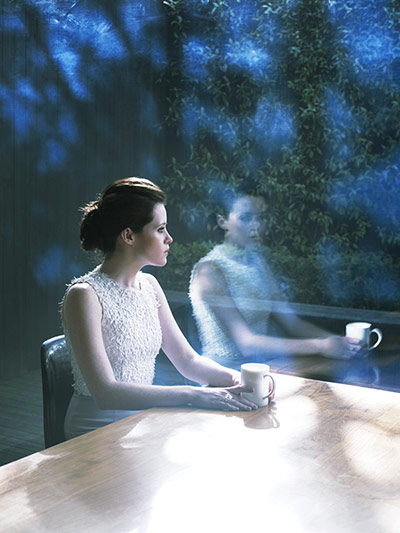
"For some reason,” says Claire Foy, “in every house I’ve ever lived in I couldn’t get reception, or I could only get BBC2, so I’ve ended up watching a lot of Newsnight.” Luckily the rest of the nation is better at tuning an aerial, so they got to enjoy Foy in Going Postal and Upstairs Downstairs in 2010, and in Peter Kosminksy’s The Promise this year, which is up for best drama serial. “The Promise was really important to me,” says Foy. “I took it very personally and researched the role thoroughly – I got to really act and I loved the story so much.” Next she’s in the adaptation of Sarah Waters’s The Night Watch. “Director Richard Laxton did an amazing job with an amazing script from an amazing book. We shot it in a month and it was really cold, with naked women running around everywhere, but it’s so good" Photograph: Phil Fisk
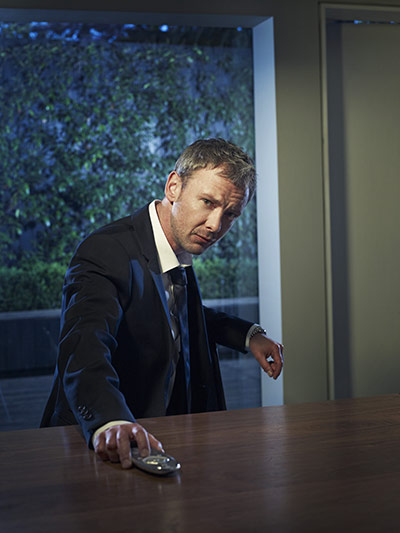
Watching TV dramas can be a busman’s holiday,” admits John Simm. “I watch them differently, wondering why they did that shot, why it was like that.” Looking at his CV, it’s easy to see why he might feel that way. As well as working with the best drama writers in television today – Paul Abbott, Jimmy McGovern, Peter Flannery, Abi Morgan – Simm’s also found mainstream adoration both as Doctor Who’s nemesis The Master and as Sam Tyler, the “back in time” cop from Life on Mars. This year he appeared in black comedy Mad Dogs – Bafta-nominated for best drama serial – and the dysfunctional family drama Exile. Shooting Mad Dogs, he says, was tremendous fun; Exile was just tremendous. “The set was a riot; Olivia Colman and Jim Broadbent were a right old laugh. We had to make it fun or it would have been the most depressing job in the world – the script was so heavy and so good” Photograph: Phil Fisk
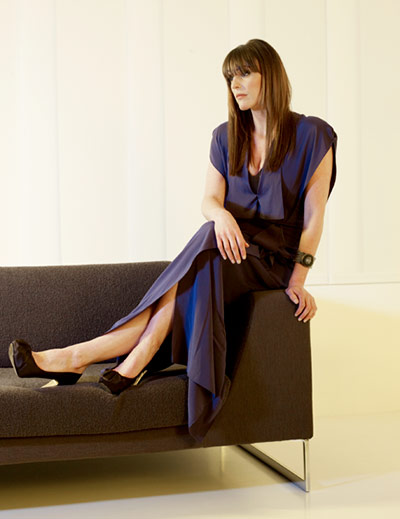
"I’ve got so sad,” says Suranne Jones. “I never thought I’d read the TV listings every week, mark what I want to watch and then Sky+ it all. But I record a mix of crap, drama, American stuff and Late Night Review.” Jones has earned the right to love her fix of TV when she’s brought so much viewing pleasure to the rest of us, from Coronation Street through dramas such as Five Days and this year’s Single Father. Next she’s in Scott and Bailey with Lesley Sharp. “It’s a female cop drama – though that’s not to say that boys can’t watch it. It’s interesting to have a female writer, director and producers working with three female leads. Definitely one for the girls” Photograph: Phil Fisk
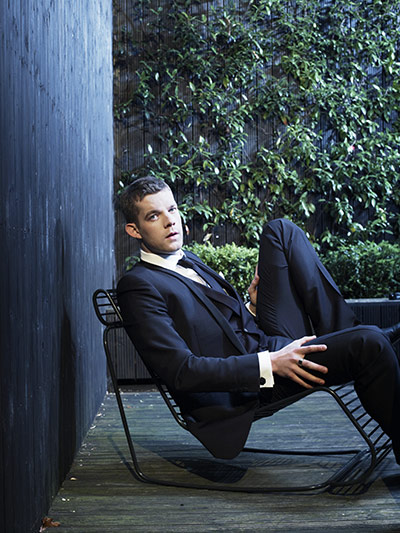
Russell Tovey first appeared on television singing a song from Aladdin at the Lakeside Shopping Centre on Michael Barrymore’s My Kind of People. “He told me I was very professional.” Barrymore was right. Since his breakthrough as Rudge in Alan Bennett’s The History Boys, he’s appeared in such diverse TV as Little Dorrit, Gavin and Stacey, Doctor Who and the much-loved Being Human. “I didn’t realise I was a sci-fi fan until Being Human,” he says of one of the nominees for best drama series. “Now I’ve been to sci-fi conventions with it and and realised I love it. The Goonies, Star Wars, Teen Wolf… all sci-fi” Photograph: Phil Fisk
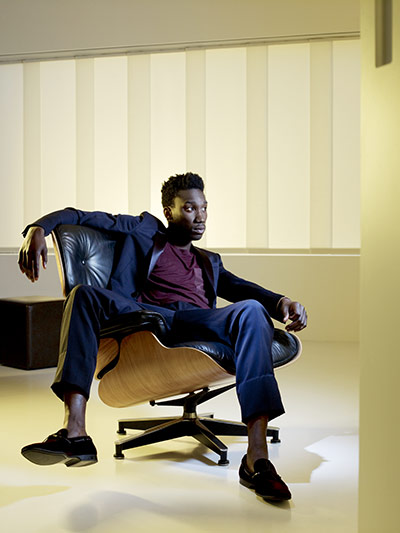
Nathan Stewart-Jarrett had no clue that he’d grow up to be a superhero when he watched Spiderman and Batman at his grandparents’ house, but those shows made him love the comic- book genre. Curtis Donovan, his character on Misfits, may not be as clean-cut as the original superheroes, but his special time travelling power is more complex. “Yeah, we do get confused about the timeline,” he admits. “At first we had daily briefings about what had and hadn’t happened. I numbered everything to separate out the time travel trips.” Batman never had to do that Photograph: Phil Fisk
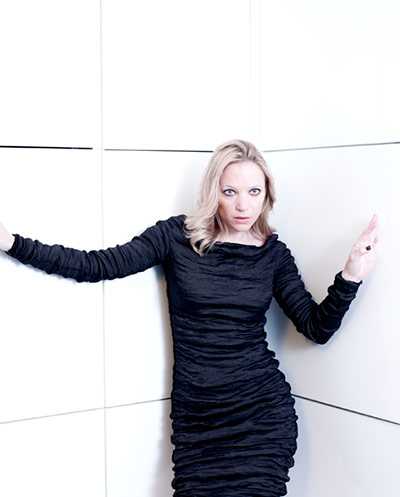
Natalie Press says the actor in her enjoyed the responsibility of appearing in Five Daughters, the drama that told the story of the five victims of Ipswich serial killer Steve Wright. Her instinct was right: she’s nominated for leading actress for her portrayal of Paula Clennell, the fourth woman murdered by Wright in 2006. “You don’t often know if what you’re doing makes a positive difference,” says the 30-year-old Press. “We were honouring the families, giving them the respect they deserved and which they were robbed of by the media. We felt we were righting a wrong.” She’s currently filming a new series of Peter Morgan’s The Jury, but her next role will be in the film Ill Manors – the directorial debut of Ben “Plan B” Drew. “That was wild, a very raw thing. We did guerilla filming: going in, getting our shots, and getting out” Photograph: Phil Fisk
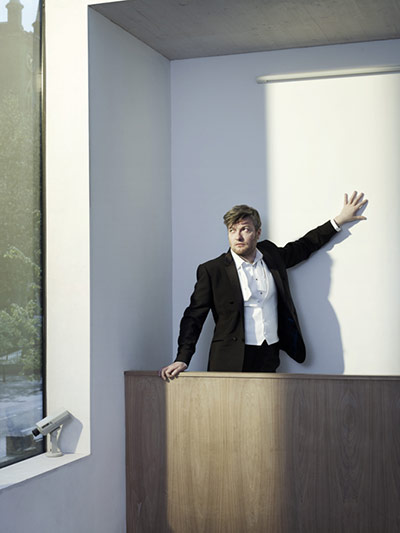
Last year Charlie Brooker was ours. We, the longtime lovers of his TV criticism, columns, comedies, and late-night BBC4 show Screenwipe, we owned him. This year the rest of the world muscled in, and for Brooker things changed. As presenter of How TV Ruined Your Life and co-host of 10 O’Clock Live, suddenly Brooker the acerbic, wise, ranting journalist became a celebrity. “I don’t go out much,” he says, “so I’m not that aware of fame, but when I do, people try and look at me when I’m having a piss. This is a downside.” In person his outraged gestures are explosive and comic, and his hair, which on telly can look like the ghost of a stray cat, hovering above his elastic face, appears elegantly pouffed. As a child he loved Tex Avery cartoons, Emu’s Broadcasting Company and Not the Nine O’Clock News, “anything with fake idents, anything where people pretended to be newsreaders, anything with gags that broke the fourth wall” Photograph: Phil Fisk/Phil Fisk
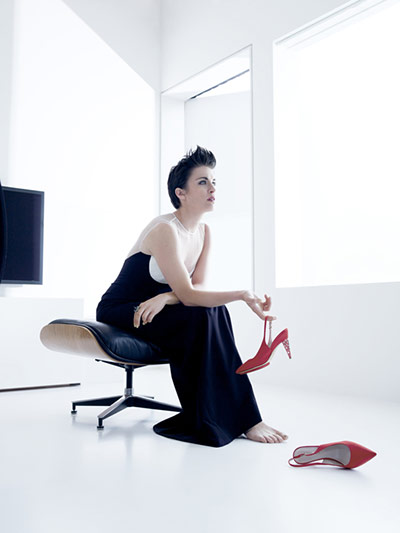
"I take Lol home with me every bloomin’ day,” says Vicky McClure of her character in the 2006 film This is England and the subsequent TV drama This is England ’86. The role has won her a nomination for leading actress, but McClure certainly pays for her art. “It was difficult,” McClure reveals. “For the sake of women who’ve gone through rape, abuse and all these horrendous things, I had to understand it and experience it to some degree. Me and Johnny Harris [who played Lol’s abusive father] had to do rehearsals and prep for that, which won’t be shared with anyone. It took acting to a different extreme for me.” Having just finished the follow-up serial, This is England ’88, McClure has now worked with director Shane Meadows four times. “I know how lucky I am,” she says. “He’s an actor’s director, a genius. He’s always going to be my number-one director – and he’s my buddy, too” Photograph: Phil Fisk
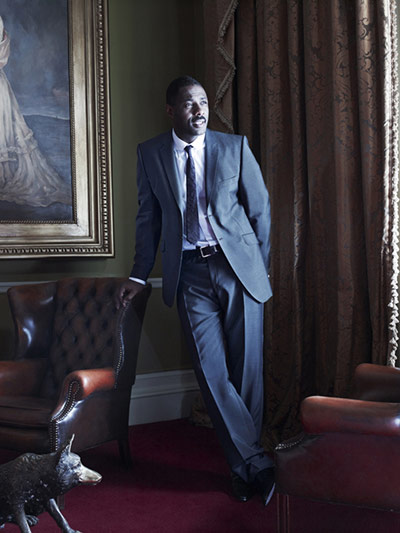
The second series of TV cop drama Luther is due in a couple of weeks and Idris Elba is looking forward to it. “I had a great time filming Luther,” he says. “The only downside is starting at 6am in the freezing cold, apart from that we have a real laugh.” Elba is currently immersed in yet another gruelling work schedule – he had to be photographed on Good Friday, his only free time while he’s working day and night on the set of Ridley Scott’s new film Prometheus. But he must be getting used to the long hours by now. Ever since Elba sauntered on to our screens as Stringer Bell in The Wire he’s been in constant demand. As well as hit British and American TV shows, such as The Big C and The Office: An American Workplace, Elba’s last film, Thor, was a number-one box-office hit in both the UK and the US. The transatlantic success doesn’t seem to phase him much. “The only difference between working in the US and Britain is the accents”
Photograph: Phil Fisk
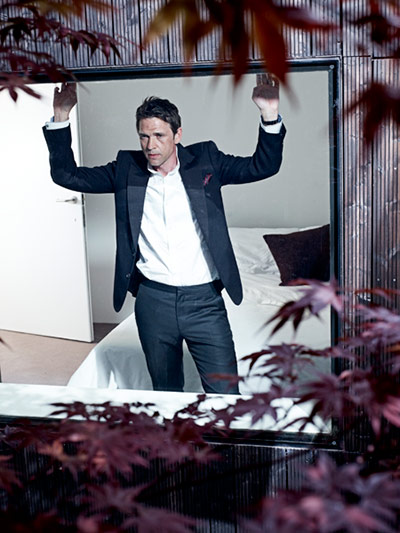
Sir Matt Busby and Arthur Miller make for unusual bedfellows, but Dougray Scott has played both this year, an experience that he says was as baffling as it sounds. While his Miller will be seen in the upcoming British film My Week With Marilyn, his Busby graced the small screen in United, the BBC retelling of the Munich air disaster, last month. “My dad was a footballer [he played for Queen’s Park], so the game’s always been a big part of my life.” Scott is a TV veteran in the UK and the US, from his breakthrough on Soldier Soldier in 1995 to a season on Desperate Housewives. He says the main difference is that you get less time in America. “It’s all about [audience] numbers: they’ll cancel a series at the drop of a hat. But you can’t really think about that when you’re filming – you just have to try and get it right. It’s good to be naive sometimes” Photograph: Phil Fisk







